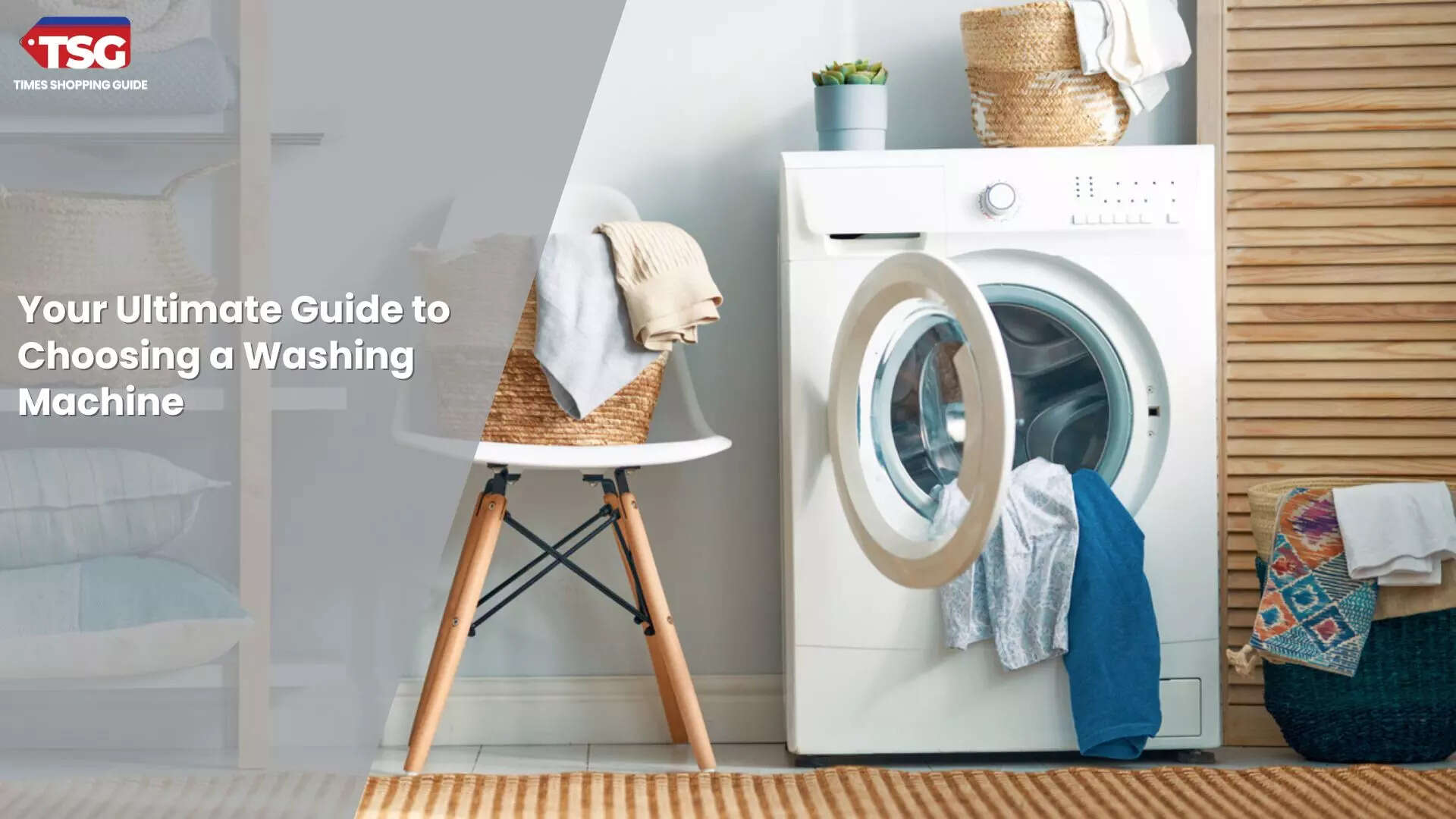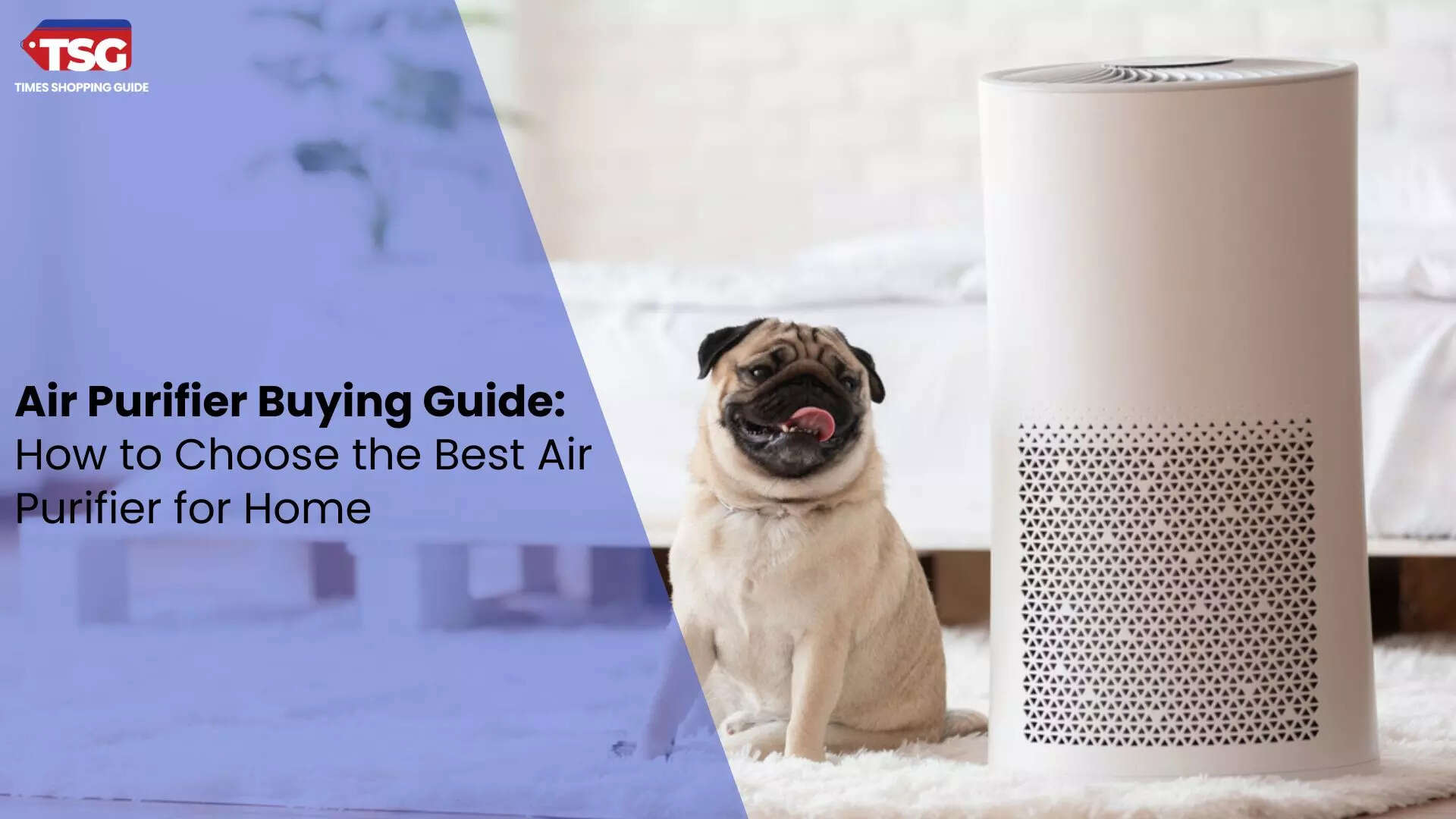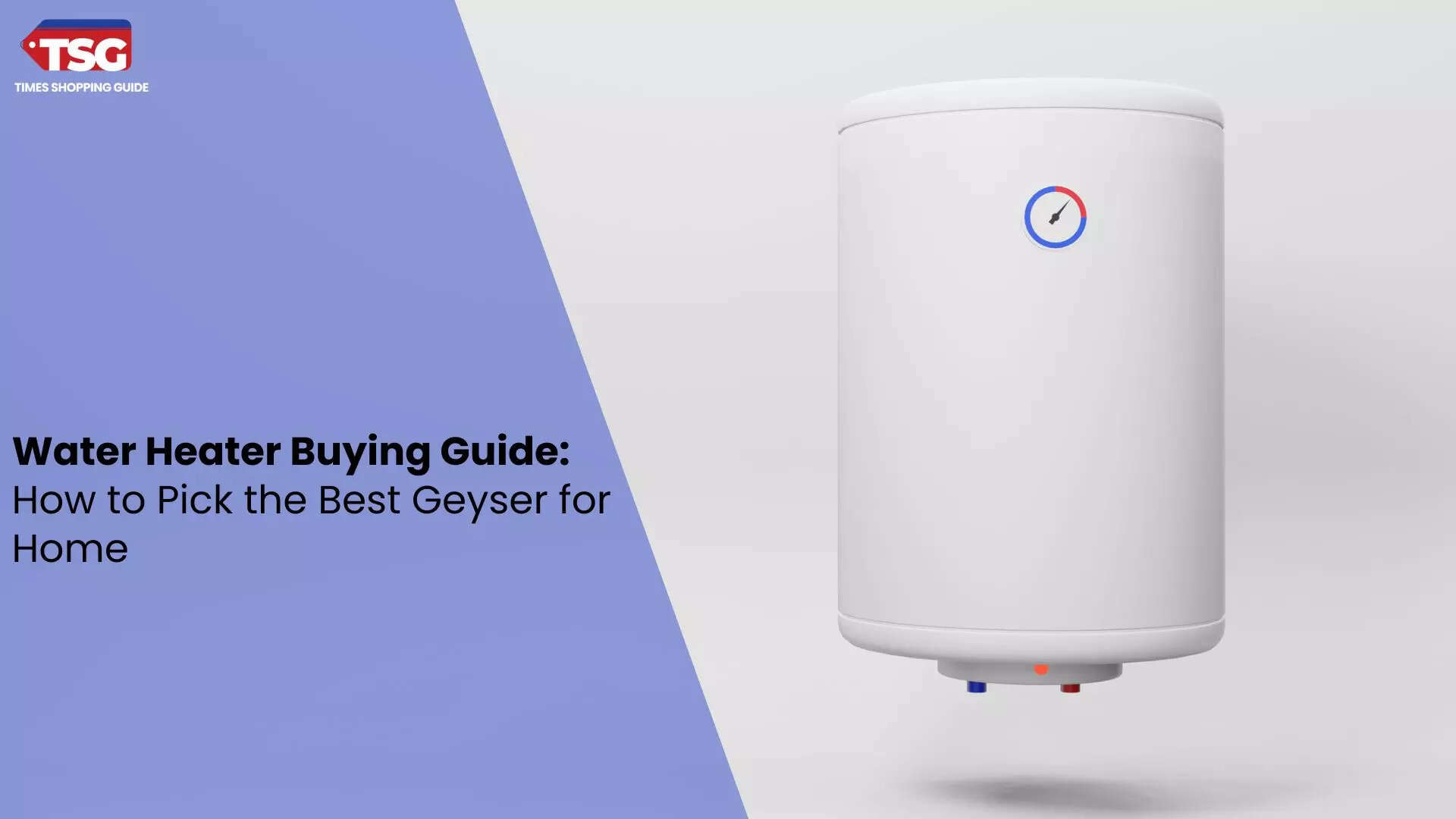- home
- appliances
- buying guide
- buying guide for washing machine find the ideal washing machine for your home
Buying Guide for Washing Machine: Find the Ideal Washing Machine for Your Home
After a busy weekend, the thought of tackling laundry can feel overwhelming. A washing machine can be a game-changer, offering advanced features to make laundry tasks easier and more efficient. These appliances are designed to handle your laundry needs with minimal effort, allowing you to unwind and enjoy your free time. Check out our comprehensive buying guide to find the perfect washing machine that fits seamlessly into your routine and meets all your laundry needs.

1. Understanding Your Needs
a. Household Size and Laundry Load
The size of your household and the amount of laundry you do regularly will determine the capacity of the washing machine you need. A compact or small-capacity machine may suffice for a small household or limited laundry. Larger families or those with heavy laundry needs should consider machines with higher capacities.
b. Space and Installation
Consider the space available in your home for installing the washing machine. Measure the dimensions of the space, including height, width, and depth, to ensure the machine will fit. Also, take note of ventilation and water supply requirements, especially if you’re installing the machine in a confined space.
2. Types of Washing Machines
a. Front-load washing Machines
Front-load washing machines are celebrated for their advanced efficiency and water-saving features. They are distinguished by their horizontal drum design, which operates on a tumbling action that provides a thorough clean while using less water than traditional top-load machines.
b. Top-Load Washing Machines
Top-load washing machines are a traditional choice, known for their ease of use and quick wash cycles. These machines are designed for loading laundry from the top, which can be more convenient for users who prefer not to bend down. They come in two primary varieties: high-efficiency (HE) and traditional.
Types of Top-Load Washing Machines:
a. Traditional Top-Loaders:
Agitator Design: Traditional top-load washing machines often feature a central agitator—a post with fins that move clothes around in the drum. This design can be less gentle on fabrics but is effective for thorough cleaning.
Affordability: These machines generally have a lower upfront cost than high-efficiency models, making them a budget-friendly option for many households.
b. High-Efficiency (HE) Top-Loaders:
Impeller Design: HE top-load washers use an impeller or low-profile agitator designed to create a more gentle wash action and better utilize water for cleaning. This design improves fabric care and efficiency.
Water and Energy Efficiency: HE top-loaders are more water—and energy-efficient than traditional models. They use less water and detergent while providing effective cleaning. They also typically have higher spin speeds to remove more water, reducing drying time.
c. Combination Washer-Dryers
Combination washer-dryers offer the convenience of both washing and drying functions in a single unit, making them an excellent choice for those with limited space or who prefer the simplicity of a single appliance for their laundry needs. These machines are particularly useful in small apartments, vacation homes, or any setting where a separate washer and dryer are not practical.
d. Portable Washing Machines
Portable washing machines are compact and can be moved around easily. They suit small living spaces or people needing a temporary washing solution. These machines are typically less powerful and have smaller capacities than standard units.
3. Key Features to Consider
a. Capacity
The capacity of a washing machine determines how much laundry it can handle in one load. Capacity is usually measured in kilograms or pounds. Choose a capacity based on your household size and laundry frequency:
- Small Capacity (5-7 kg): Suitable for small households or individuals.
- Medium Capacity (8-10 kg): Ideal for average-sized families.
- Large Capacity (11+ kg): Best for large families or heavy laundry needs.
b. Energy Efficiency
Energy efficiency is crucial for reducing utility bills and minimizing your environmental impact. Look for washing machines with high energy efficiency ratings, such as those labelled with the Energy Star certification. Energy-efficient machines use less electricity and water, leading to cost savings over time.
c. Water Consumption
Water consumption varies between washing machine models. High-efficiency machines typically use less water than traditional models. Check the machine’s water usage specifications and opt for a model that conserves water while providing effective cleaning performance.
d. Spin Speed
The spin speed of a washing machine, measured in revolutions per minute (RPM), affects how dry your clothes will be after the wash. Higher spin speeds remove more water, reducing drying time. Look for machines with adjustable spin speeds to accommodate different types of laundry.
e. Wash Programs and Settings
Different wash programs cater to various types of fabrics and laundry needs. Common programs include:
- Regular Wash: For everyday laundry.
- Delicates: For gentle cleaning of delicate fabrics.
- Heavy Duty: For heavily soiled items.
- Quick Wash: This is for fast cleaning lightly soiled clothes.
f. Noise Level
Noise levels can vary between washing machines. If you have a laundry area near living spaces or bedrooms, consider a machine with a quieter operation. Check the decibel rating in the specifications and look for models designed to minimize noise.
g. Control Panel and User Interface
The control panel and user interface should be user-friendly and easy to navigate. Modern washing machines often have digital displays, touch controls, and programmable settings. Choose a machine with a control panel that suits your preferences and is easy to use.
h. Build Quality and Durability
The build quality of the washing machine affects its longevity and performance. Look for machines with durable materials and robust construction. Stainless steel drums are generally more durable and less prone to rust than plastic ones.
i. Smart Features
Smart washing machines have advanced features like Wi-Fi connectivity, smartphone app controls, and automated wash cycle suggestions. These features offer convenience and allow you to monitor and control your washing machine remotely.
4. Budget Considerations
a. Initial Cost
The upfront cost of a washing machine can vary widely based on its type, capacity, and features. Set a budget based on your requirements and explore options within that range. Higher-end models with advanced features may come with a higher price tag but offer added convenience and efficiency.
b. Long-Term Costs
Consider the long-term costs of the washing machine, including energy and water consumption. Energy-efficient and water-saving models may have a higher initial cost but result in savings on utility bills over time.
c. Maintenance and Repairs
Factor in potential maintenance and repair costs. Some machines may require regular servicing or repairs, which can add to the overall cost of ownership. Check the manufacturer's warranty terms and service options.
5. Installation and Setup
a. Professional Installation
Professional installation ensures the washing machine is set up correctly and optimally. Many retailers offer installation services as part of the purchase. Professional installers can also handle any plumbing or electrical requirements.
b. DIY Installation
If you prefer to install the machine yourself, follow the manufacturer’s instructions carefully. Ensure that the machine is level, properly connected to the water supply and drainage, and securely plugged in. Test the machine with a small load to check for any issues.
c. Maintenance Tips
Regular maintenance extends the life of your washing machine and keeps it running efficiently. Clean the lint filter, check hoses for leaks, and run occasional cleaning cycles to prevent odours and buildup.
6. Conclusion
Selecting the suitable washing machine involves understanding your needs, exploring different types and features, and considering capacity, efficiency, and budget. By evaluating these aspects carefully, you can find a washing machine that enhances your laundry experience and meets your household requirements. From front-loaders to top-loaders and combination units, the right washing machine can make a significant difference in the efficiency and convenience of your laundry routine. Happy shopping and may you find the perfect washing machine for your home
Are you still unsure which washing machine to buy? Our top picks will help you make the best decision.
- LG 8 Kg 5 Star Inverter TurboDrum Fully Automatic Top Loading Washing Machine
- LG 8 Kg 5 Star Direct Drive Technology, Steam Wash, 6 Motion DD, Smart Diagnosis, Fully Automatic Front Load Washing Machine
- Whirlpool 7 Kg 5 Star Royal Fully-Automatic Top Loading Washing Machine
- Samsung 7 kg, 3 star, Fully-Automatic Top Load Washing Machine
- ROMINO 0.8 Kg Portable Mini Top Loading Washing Machine
FAQs:
What size washing machine should I choose?
Choose a washing machine with a capacity that matches your household's laundry needs. For small households or individuals, a 5-7 kg capacity may be sufficient, while larger families may require a 8-12 kg capacity. Consider the frequency and volume of laundry to make the best choice.
What’s the difference between front-load and top-load washing machines?
Front-load washing machines are generally more energy and water-efficient, offer better fabric care, and have larger capacities but require bending to load and unload. Top-load washing machines are more convenient, have shorter wash cycles, and are easier to add laundry mid-cycle but may use more water and energy.
Are high-efficiency (HE) washing machines worth the investment?
Yes, high-efficiency (HE) washing machines are designed to use less water and energy, saving you money on utility bills over time. They also often have advanced features and can provide better cleaning performance with less detergent.
Disclaimer: Times Shopping Guide is committed to bringing you the latest products from the best brands. Our selection is based on market research and positive consumer feedback. Times Shopping Guide is also a part of an affiliate partnership. In line with this, we may receive a portion of the revenue from your purchases. Please note that the product prices are subject to change based on the retailer's deals.








